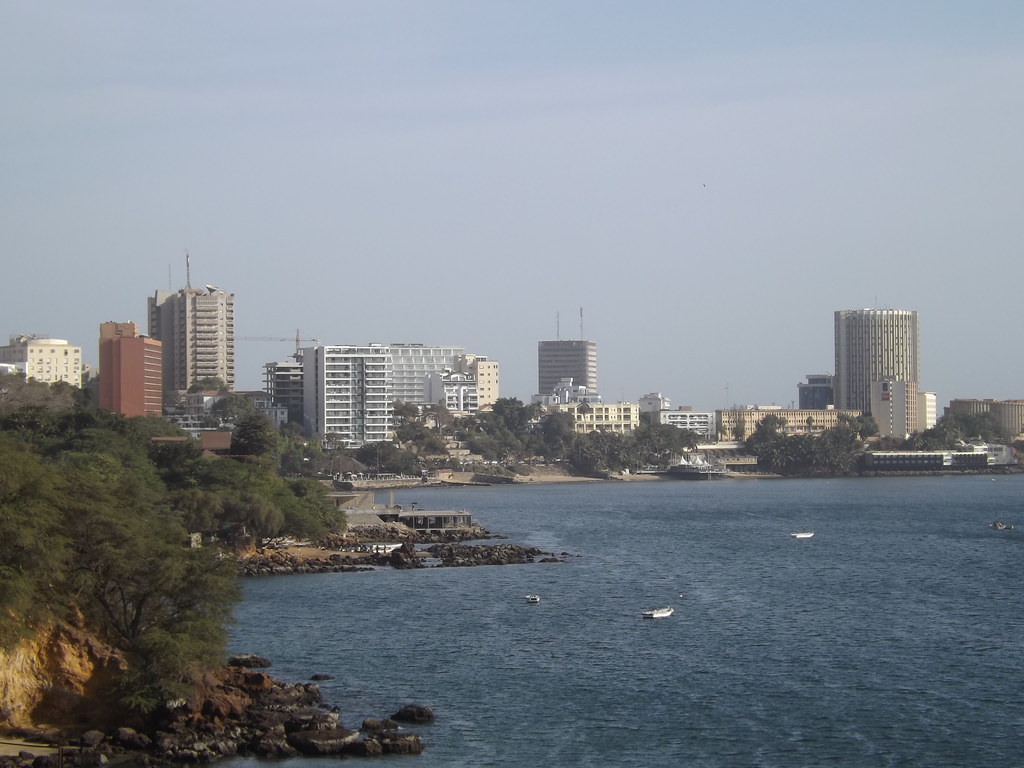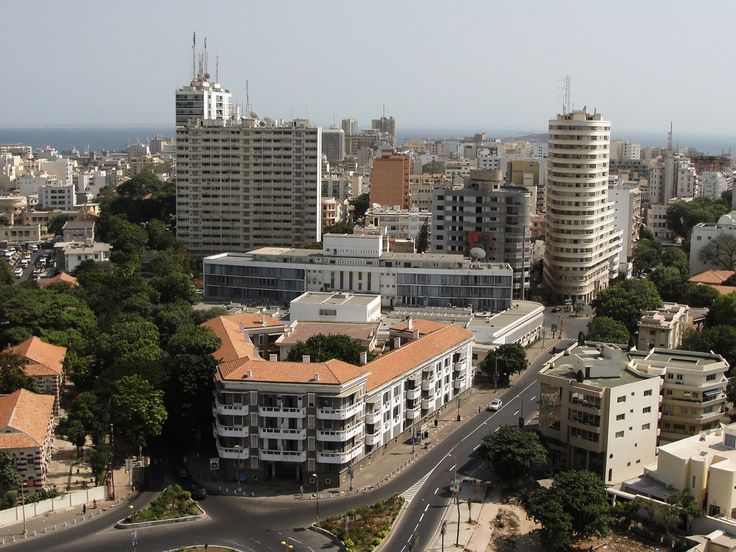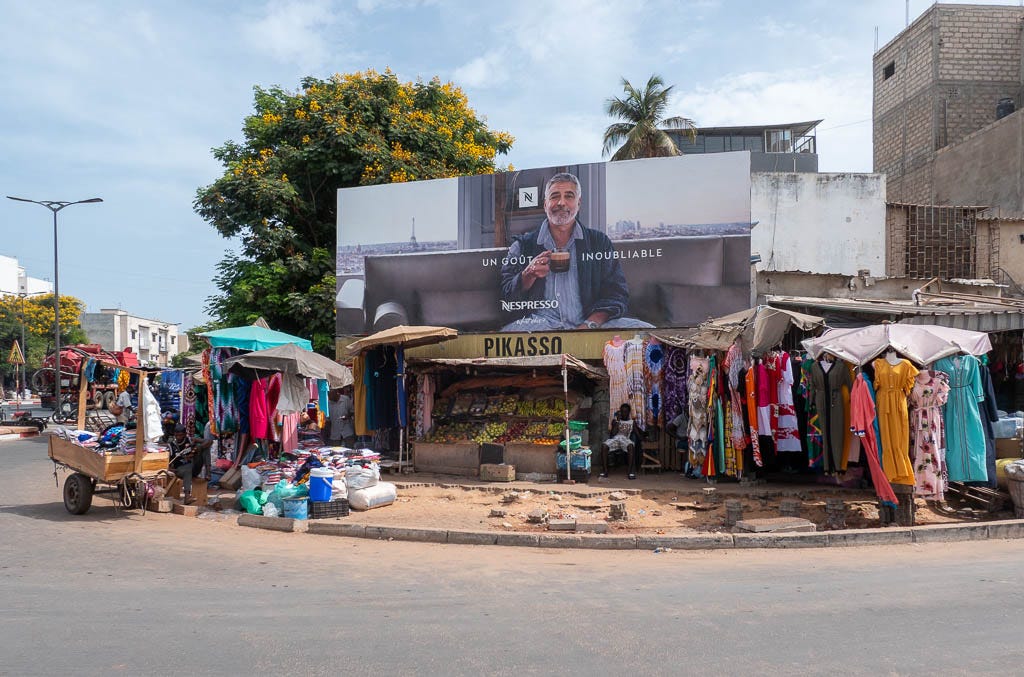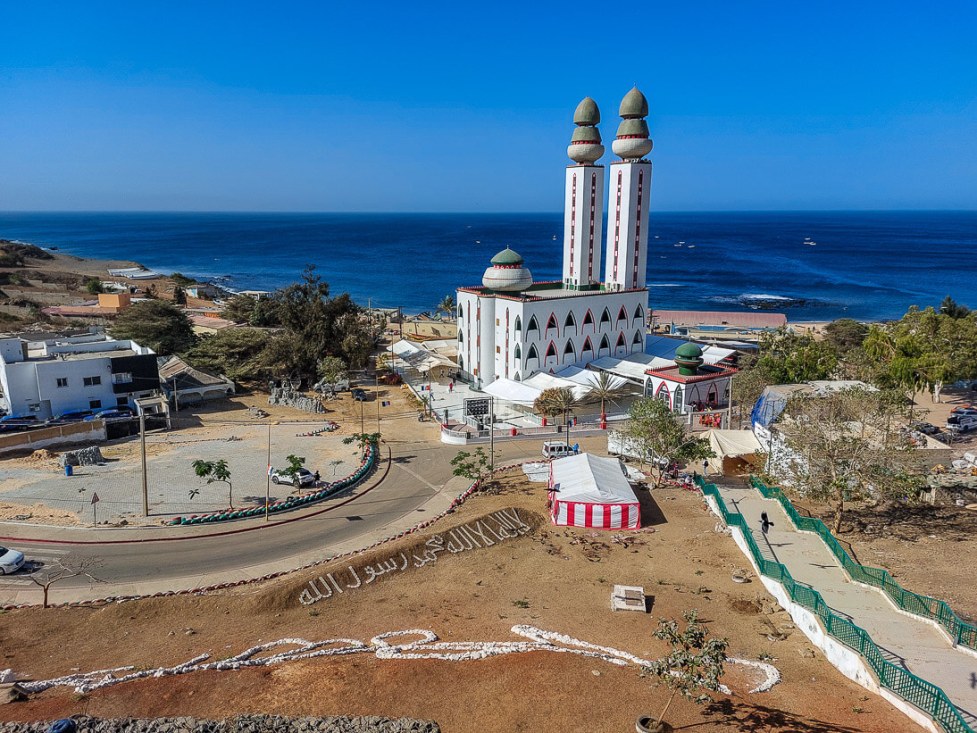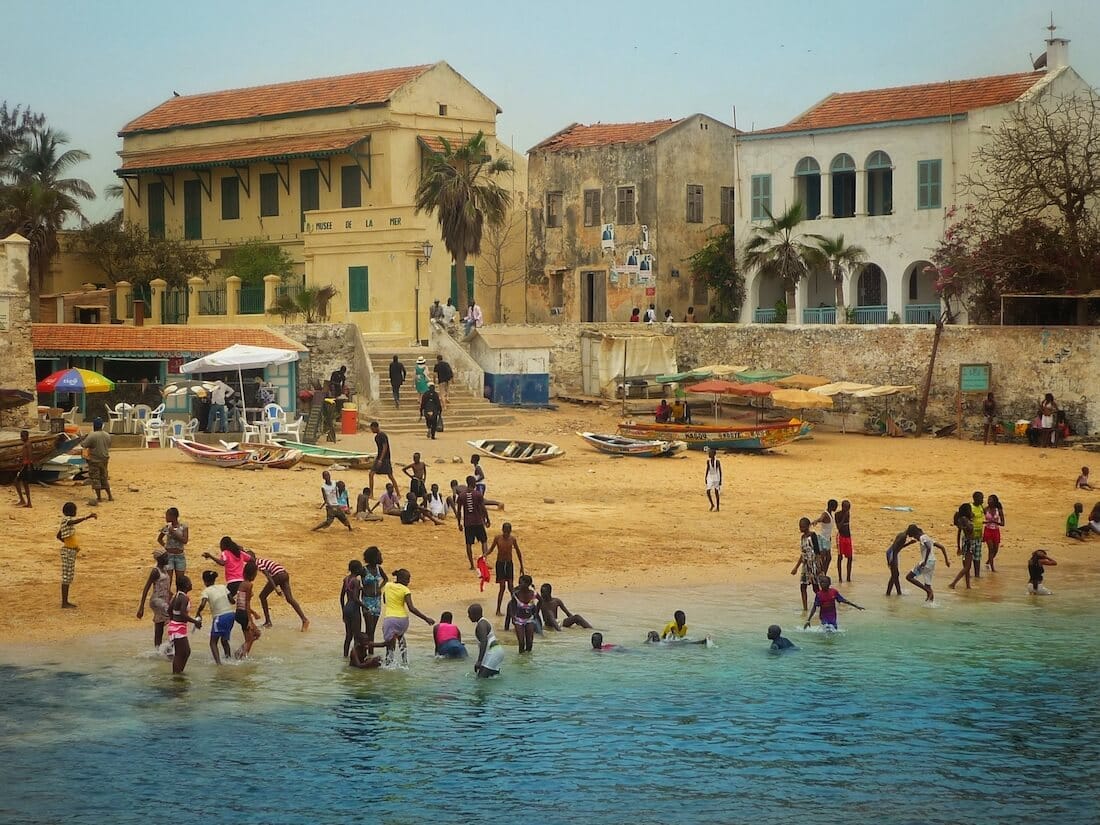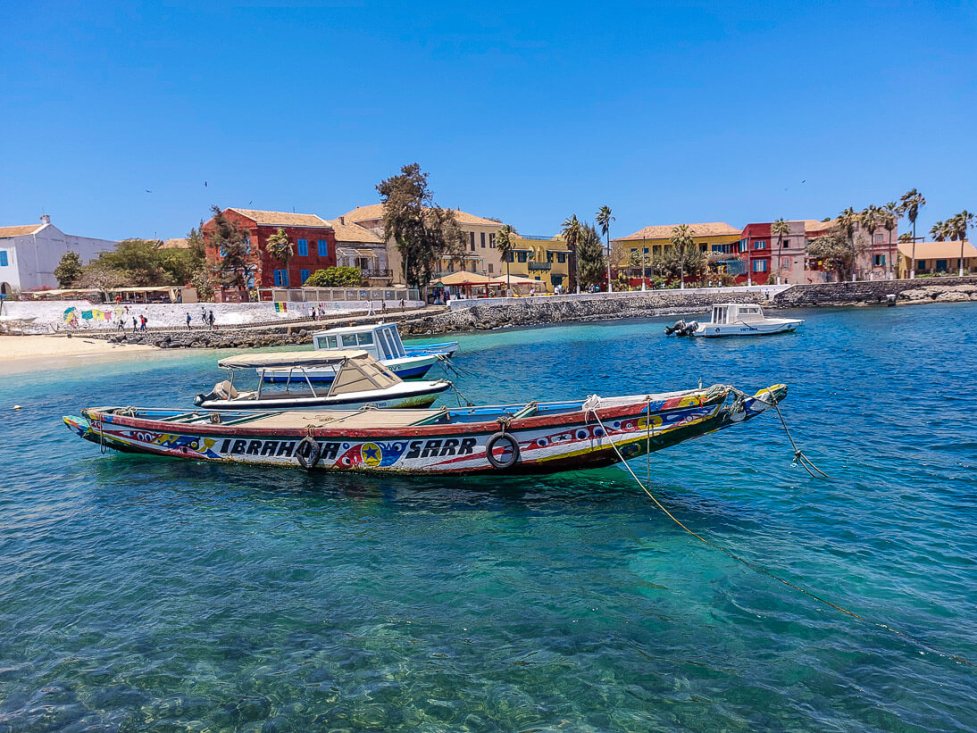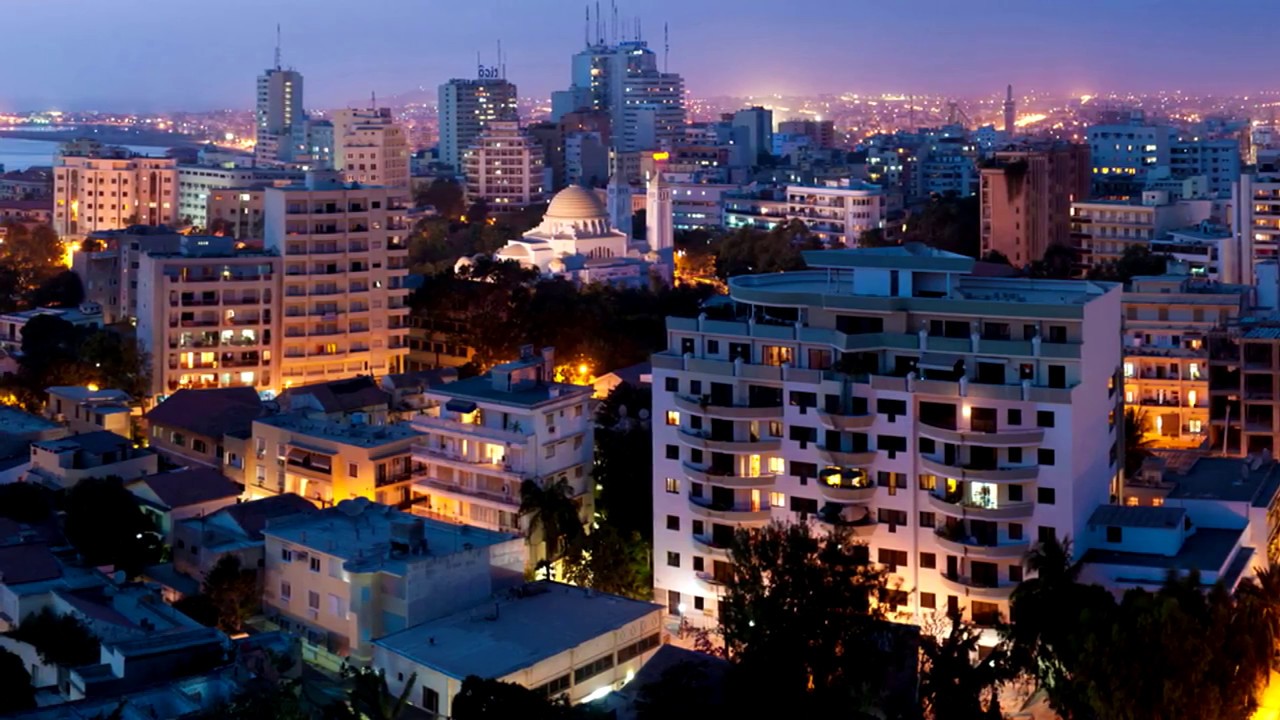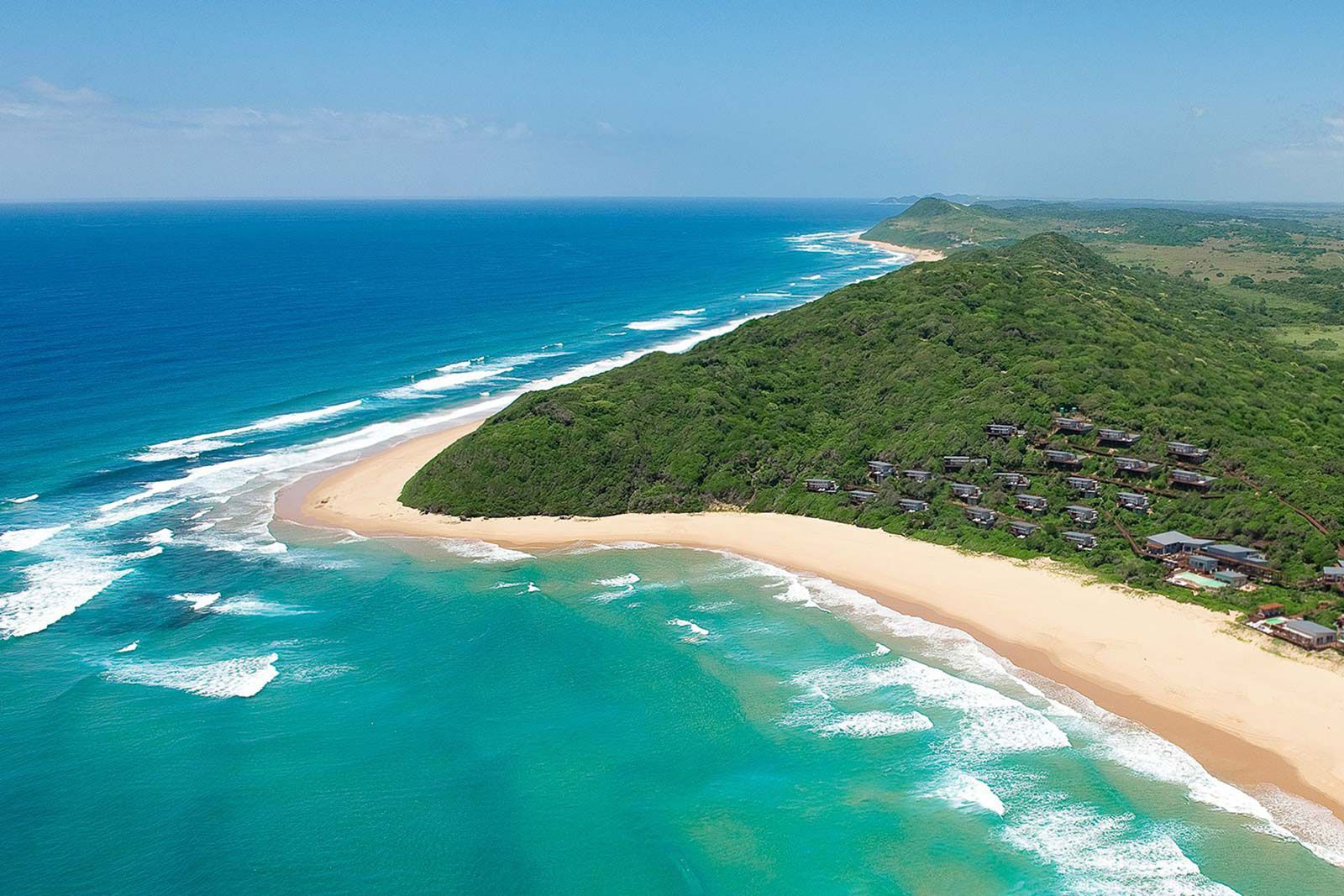Views of Dakar
About
location:
Cap-Vert Peninsula, Atlantic Coast, Senegal
Dakar is a fascinating city with a rich history and diverse culture. The city was founded by the French in 1857 and became the capital of French West Africa in 1902. The city has a unique mix of African, French, and Arab influences. Dakar is known for its lively nightlife, with a number of bars, clubs, and restaurants offering live music.
There are also a number of art galleries and museums in the city, such as the Museum of Black Civilizations and the IFAN Museum of African Arts. The city is also a great place to experience the local cuisine, with a mix of French, African, and Arabic dishes.
Some popular dishes include thieboudienne (a fish and rice dish), yassa (a chicken dish), and mafe (a peanut-based stew). You can also find a number of street food vendors selling traditional Senegalese dishes like bissap (a hibiscus drink) and bissap a baobab (a juice made from baobab fruit). And, of course, no trip to Dakar would be complete without trying some of the local coffee!
One of the most interesting things about Dakar is its rich arts and culture scene. The city is home to a number of talented musicians, dancers, and artists. The annual Dakar Biennale is a major international arts festival that takes place every two years, and it attracts artists and performers from all over the world.
The city also has a number of art galleries, such as the National Gallery of Senegal and the Medina Art Gallery. There are also several museums in the city, including the Museum of Black Civilizations, which explores the history and culture of Africa. And, of course, there are also a number of street performers, who can often be found in the city's central districts.
Whether you're interested in art, music, or dance, Dakar has something to offer everyone. And, of course, the city's nightlife is always lively and full of energy.
Things to know before travelling to Dakar
This article is a tip of the iceberg but will equip you with the "Absolute Need to Knows" for Dakar.
How to get there?
To get to Dakar, you'll need to fly into Blaise Diagne International Airport, which is located about 45 minutes outside of the city. From there, you can take a taxi or a bus into the city.
Alternatively, you can fly into Mbour, which is a smaller airport that's a bit closer to the city. If you're coming from elsewhere in Africa, you may also be able to take a train or bus to Dakar.
About the weather
The weather in Dakar is generally warm and sunny, with temperatures ranging from the mid-70s to the mid-90s Fahrenheit. The rainy season runs from June to October, and during this time the weather can be quite humid. The driest months are December and January.
Regardless of the time of year, it's a good idea to pack light, breathable clothing and a sun hat. You may also want to pack an umbrella, as there can be occasional showers even outside of the rainy season.
Medical matters that affect your visit.
Malaria
Malaria is a concern in Senegal, so it's a good idea to consult with your doctor about taking malaria prophylaxis medication before you travel. It's also important to take precautions against mosquito bites, such as using mosquito repellent and wearing long-sleeved shirts and pants.
Yellow Fever
Yellow fever is a serious disease that is transmitted by mosquitoes in Senegal, including the city of Dakar. The disease can cause fever, headache, muscle pain, nausea, and vomiting, and in some cases it can be fatal. There is a vaccine for yellow fever, and it's recommended that all travelers to Senegal receive the vaccine before they travel.
It's also important to take steps to prevent mosquito bites, such as wearing long sleeves and pants, using insect repellent, and sleeping in a mosquito net. While the risk of contracting yellow fever is low, it's better to be safe than sorry.
Water-borne illnesses
Water-borne illnesses are a significant concern in Dakar and throughout Senegal. These illnesses are caused by bacteria, viruses, or parasites that are found in contaminated water.
Some common water-borne illnesses in Dakar include cholera, typhoid fever, and diarrhea. The best way to prevent these illnesses is to drink only bottled water or water that has been boiled or disinfected.
It's also important to avoid eating raw fruits and vegetables that have been washed with tap water, and to use caution when swimming in bodies of water. It's a good idea to bring some anti-diarrheal medication with you, just in case you do get sick.
And, if you do get sick, be sure to see a doctor as soon as possible. They will be able to give you the proper treatment and ensure that you're on the road to recovery.
Rabies
Rabies is present in Senegal, so it's important to avoid contact with animals and to seek medical attention immediately if bitten.
Hepatitis A
Hepatitis A is a risk in Senegal, so it's a good idea to get vaccinated before traveling.
Dengue Fever
Dengue fever is a risk in Senegal, especially during the rainy season. It's important to take steps to prevent mosquito bites.
With the proper precautions, you should be able to enjoy a safe and healthy trip to Dakar.
Cultural etiquettes at Dakar
The cultural etiquettes in Dakar, the capital of Senegal, are unique and should be respected by visitors. For example, it is considered rude to be late for an appointment, so it is important to arrive on time. In addition, handshakes are common greetings and should be firm but not too strong.
It is also customary to use the formal "vous" form when addressing someone, even if they are younger than you. Furthermore, eye contact is important and is a sign of respect. Additionally, it is important to dress modestly and not show too much skin, as Senegal is a Muslim country.
Safety Precautions In Dakar
Overall, Dakar is a safe city for travelers. However, it's important to be aware of your surroundings and take some basic precautions to stay safe. The city is quite crowded, especially during rush hour, and there is a risk of pickpocketing and petty theft.
It's important to be vigilant when using public transportation, and to avoid carrying large amounts of cash or wearing flashy jewelry. If you're visiting the beaches, keep an eye on your belongings and be wary of anyone trying to sell you something.
Overall, by taking these basic safety precautions, you can enjoy your time in Dakar without any problems.
Language and communication In Dakar
The official language of Dakar, Senegal is French, but the majority of the population speaks Wolof, a language native to West Africa. English is also spoken by some people in Dakar, especially in the tourism and business sectors. Other common languages in Dakar include Pulaar, Mandinka, and Soninke.
So, if you're planning on visiting Dakar, it's a good idea to learn a few basic greetings and phrases in Wolof or French. Bonjour (hello), ça va? (how are you?), and merci (thank you) are all good words to know.
Vital Information On Money Matters
When it comes to money matters in Dakar, there are a few things you should know. First, the currency used in Senegal is the West African CFA franc (XOF). It's a good idea to have some cash on hand, as not all places accept credit cards. Second, there are a number of banks and ATMs in Dakar where you can get cash.
However, be aware of scams and fraud, and only use ATMs at reputable banks. Third, it's a good idea to use common sense and be aware of your surroundings when using an ATM.
And finally, always make sure to get a receipt for any transactions you make, and keep track of your spending. By following these tips, you can stay safe and manage your money wisely while in Dakar.
Fun Things To Do At Dakar
There are plenty of fun things to do in Dakar, from exploring the markets to visiting the beaches. Here are some ideas:
- Shop at the Marché Kermel, a vibrant market that sells everything from traditional clothing to crafts.
- Take a stroll along the Corniche, a long oceanfront boardwalk with beautiful views of the Atlantic Ocean.
- Visit the IFAN Museum of African Arts, which houses a collection of more than 10,000 works from all over Africa.
- Go to Les Mamelles Lighthouse, the tallest lighthouse in West Africa.
- Visit the Île de Gorée, a small island with a rich history and beautiful beaches.
- Take a stroll down the Promenade des Arts, a cultural hub with many art galleries and restaurants.
- Visit the Soumbédioune Fish Market, where you can see and buy fresh seafood.
- Take a day trip to Lake Retba, a pink-colored lake.
- Shop at Sandaga Market, the largest market in Dakar.
- Visit the Théodore Monod African Art Museum, which has a fascinating collection of African art.
- See the Monument de la Renaissance Africaine , an iconic statue in Dakar.
- Relax at Plage de N'Gor, a popular beach.
- Have a delicious meal at Chez Loutcha, a restaurant serving traditional Senegalese cuisine.
- Go on a guided tour of Medina, the historic center of Dakar.
- Watch the sunset at the Lighthouse of Mamelles.
These are just some of the many fun things to do in Dakar. The possibilities are endless, and you're sure to have a great time exploring this fascinating city.
Who can travel to Dakar?
Dakar is open to travelers from all over the world. However, it's important to keep in mind that Senegal is a developing country, and the standard of living may be different than what you're used to.
Additionally, it's important to check with the Senegalese embassy in your country to see if there are any travel advisories or restrictions in place. But overall, anyone who is interested in visiting Dakar is welcome to do so! So, pack your bags and get ready to explore this vibrant and diverse city.
Travel Documents
You will need a valid passport and visa to enter Senegal. Make sure your passport is valid for at least six months after your travel date and check if you need to obtain a visa before traveling.
What time of the year is best to visit?
The best time to visit Dakar is from November to March. This is the dry season in Senegal, so the weather is typically warm and sunny. Plus, many festivals and events take place during this time, including the Dakar International Film Festival and the St. Louis Jazz Festival.
Additionally, the beach weather is great during this time, making it a perfect time to relax and soak up the sun. However, it's important to keep in mind that December and January can be very crowded, as these are popular months for tourists.
So, if you're looking to avoid the crowds, visiting in November or March may be a better option for you. No matter when you visit Dakar, you're sure to have a wonderful time.
The city is a unique blend of African and European cultures, and it has something for everyone. So, start planning your trip today and get ready for an unforgettable experience!
Packing Essentials For Your Trip
Here are some packing essentials to bring with you when you travel to Dakar:
- Sunscreen and a hat, to protect yourself from the sun.
- Comfortable shoes, for exploring the city.
- A waterproof jacket, in case of rain.
- A reusable water bottle, to stay hydrated.
- Power adapters, to charge your devices.
- Mosquito repellent, to prevent bites.
- A phrasebook or translation app, to help you communicate with locals.
- A camera, to capture all the amazing sights and sounds of Dakar.
- An open mind and a willingness to explore. Dakar is a unique and diverse city, and the best way to experience it is by being open to new experiences. Bring your sense of adventure and your curiosity, and you're sure to have a fantastic time.
view map
Book Flight ticket
If this widget is not showing try reloading the page
The flight search result will be provided in a new tab
Blaise Diagne international airport, Dakar will be a good destination if you are coming from outside Senegal
Book Hotel
If this widget is not showing try reloading the page
The hotel search result will be provided in a new tab
Input Dakar, Senegal as the city name to search and compare hotel prices
You can book tours at hotels upon arrival.
